Shall We Wake the President?
Shall We Wake the President?
Two Centuries of Disaster Management from the Oval Office
Tevi Troy


An imprint of Rowman & Littlefield
Distributed by NATIONAL BOOK NETWORK
Copyright 2016 Tevi Troy
All rights reserved. No part of this book may be reproduced in any form or by any electronic or mechanical means, including information storage and retrieval systems, without written permission from the publisher, except by a reviewer who may quote passages in a review.
British Library Cataloguing in Publication Information available
Library of Congress Cataloging-in-Publication Data Available
ISBN 978-1-4930-2464-3 (hardcover)
ISBN 978-1-4930-2465-0 (e-book)
 The paper used in this publication meets the minimum requirements of American National Standard for Information SciencesPermanence of Paper for Printed Library Materials, ANSI/NISO Z39.48-1992.
The paper used in this publication meets the minimum requirements of American National Standard for Information SciencesPermanence of Paper for Printed Library Materials, ANSI/NISO Z39.48-1992.
A friend loves at all times, and a brother is born for adversity.
Proverbs 17:17
To my brothers, Dan and Gil Troy, role models of excellence, each of whom is important in his own right.
Foreword
Presidents and Disasters
by the Honorable Joseph Lieberman, former US Senator for Connecticut
America cannot choose the disasters that confront us, but we can prepare for them. That was a critical lesson of the Blue Ribbon Study Panel on Biodefense, which I had the privilege of co-chairing with former Department of Homeland Security secretary Tom Ridge. The panel found that America does face a range of grave threats on the biodefense frontand, unfortunately, we are unprepared for many of them.
Our report said, The United States is underprepared for biological threats. Nation states and unaffiliated terrorists (via biological terrorism) and nature itself (via emerging and reemerging infectious diseases) threaten us. While biological events may be inevitable, their level of impact on our country is not.
The panel identified a particular weakness where the United States is falling short in the effort to prepare for biological attacks and emerging and reemerging infectious diseases. That weakness is the lack of strong centralized leadership at the highest level of government.
To that end, our panel recommended steps that the president could take to shore up our biodefense capabilities. The insufficiency of our fragmented biodefense activities persists because biodefense lacks focused leadership. Capable individuals oversee elements at the department and agency levels, but no steward guides them collectively, our report concluded. We need strong presidential leadership to get us where we need to go on the preparedness front.
When disaster strikes, citizens look to the president. This means that regardless of the type of disaster, the president needs to be prepared. The need for presidential leadership in preparing for and responding to disasters is no strange topic to my good friend Dr. Tevi Troy, an ex officio member of the panel and trusted colleague in our preparedness endeavor. As a former deputy secretary of the Department of Health and Human Services (HHS), Tevi understands the nature of the threats we face in the areas of bioterror and infectious diseases. While at HHS, Tevi worked on preparing the US governments plan for avian flu, a plan that the Obama administration later put to good use in the Swine flu outbreak of 2009.
As a presidential historian and former White House aide, Tevi also understands that to address potential threats most effectively will require leadership in Washington that not only recognizes the magnitude of various biohazards but also the limits of presidential power and the need for coordination by federal, state, and local governments.
This book Shall We Wake the President? will help future US presidents as well as policymakers of all levels prepare for the disasters that will inevitably come. It goes beyond bioterror attacks and infectious disease outbreaks. Tevi looks at a wide range of potential threats that a president may face. He talks about how state and local governments can do their part. And he even gives practical advice for how individuals canand shouldprepare for the disasters that may strike our nation.
Fifteen years after the terror attacks of 9/11, it is clear that our nation has done much to make ourselves better defended and better prepared. But it is also clear that we still have more work to do. Reading this book will give insights from history, illuminate the role of past presidents in meeting challenges, and point us all in the direction to make more progress together in securing our homeland.
I urge our presidential candidates, one of whom will be our next president, to read this book, and I urge you to read it as well.
Joseph I. Lieberman
US Senator, 19892013
Co-Chair, Blue Ribbon Study Panel on Biodefense
Introduction
I spent most of the first decade of the twenty-first century working in the executive branch of the US government. My experiences there were framed and shaped by the challenge of effectively dealing with disasters. Just eight months before the attacks on 9/11, I began working at the Department of Labor, and gained enough perspective to appreciate how a catastrophe can expose and reshape government, culture, and history. From that fateful day on, my time at the Department of Labor was focused on responsefrom how to get federal resources to Ground Zero to the longer-term effort of emergency preparedness and federal reorganization. The 9/11 attacks brought home the important lesson that every branch of the federal government and every level of government has a role to play in disaster recovery efforts, no matter how seemingly remote its responsibilities.
Within six months of the 9/11 attacks, President George W. Bush initiated a White House staff shake-up to cope with the post-9/11 realities. This reorganization led to my first position at the White House, on the Domestic Policy Council. While serving at the DPC, I saw and worked with colleagues to bring together agencies and resources to anticipate post-9/11 needs. For example, Project Bioshield was designed to prepare for the possibility of biological warfare. And then there was the merging of the bulk of US security programs into the newly formed Department of Homeland Security (DHS).
After President Bush was reelectedin a campaign shaped by his strong 9/11 responseI was promoted to a more senior position at the DPC. While I was there, President Bush reported to his senior advisers that he had read John Barrys The Great Influenza , about the Spanish Flu that killed tens of millions of people in the period between 1918 and 1920. The book had a powerful impact on him, and he wanted the United States to develop a robust plan for flu pandemic prevention and response. I spent much of my time in that job working with the Departments of Health and Human Services (HHS) and Homeland Security to develop such a plan for dealing with a possible viral outbreak.
Within six months of my starting this new White House position, though, another disaster struck: Hurricane Katrina. This disaster, and the response of government at all levels, would shape Bushs second term, just as 9/11 shaped his first term. Katrina exposed the importance of communication, coordination, and accountability. As America would soon learn, Katrina was not the end of the challenges faced by Bush in his second termas the subprime financial crises of 2007 and 2008 soon led to the Great Recession, the most severe banking crisis and economic dislocation since the Great Depression.
Next page
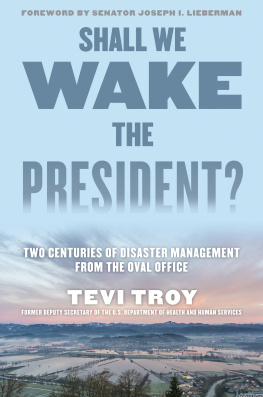
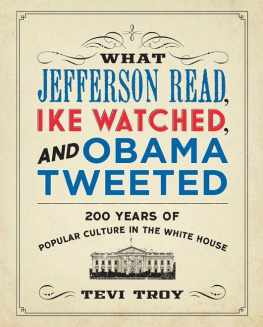

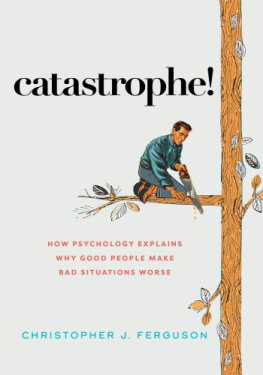
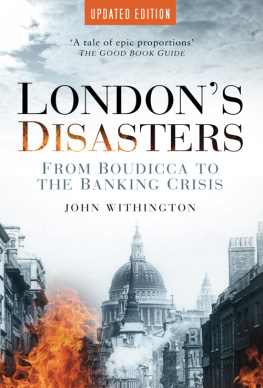
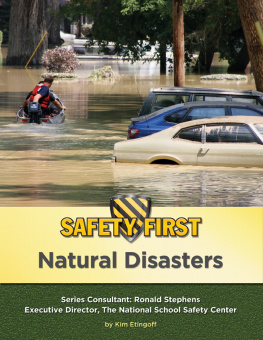
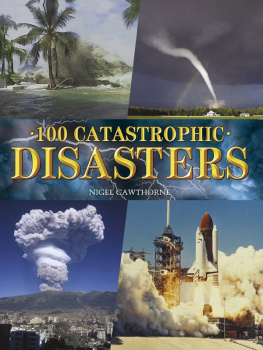
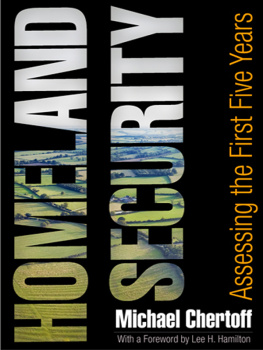
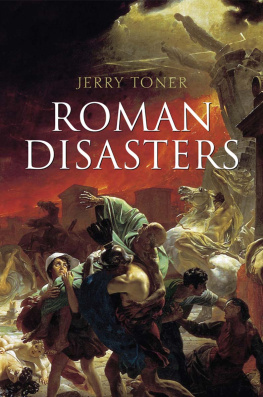
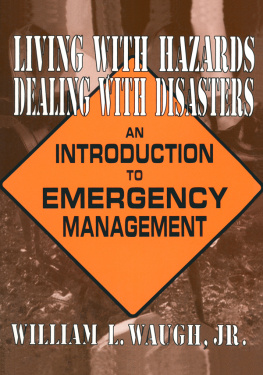
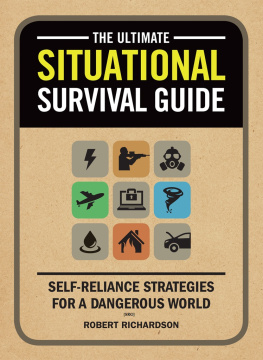
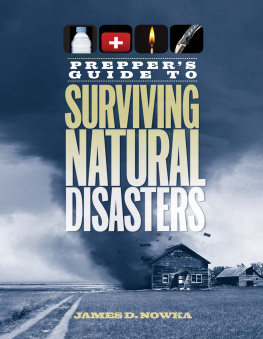


 The paper used in this publication meets the minimum requirements of American National Standard for Information SciencesPermanence of Paper for Printed Library Materials, ANSI/NISO Z39.48-1992.
The paper used in this publication meets the minimum requirements of American National Standard for Information SciencesPermanence of Paper for Printed Library Materials, ANSI/NISO Z39.48-1992.